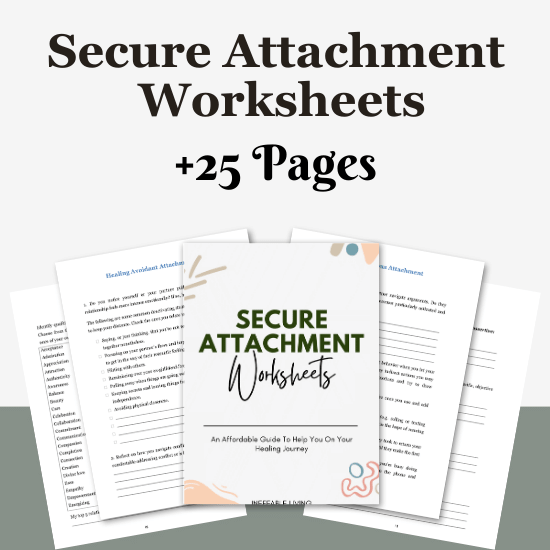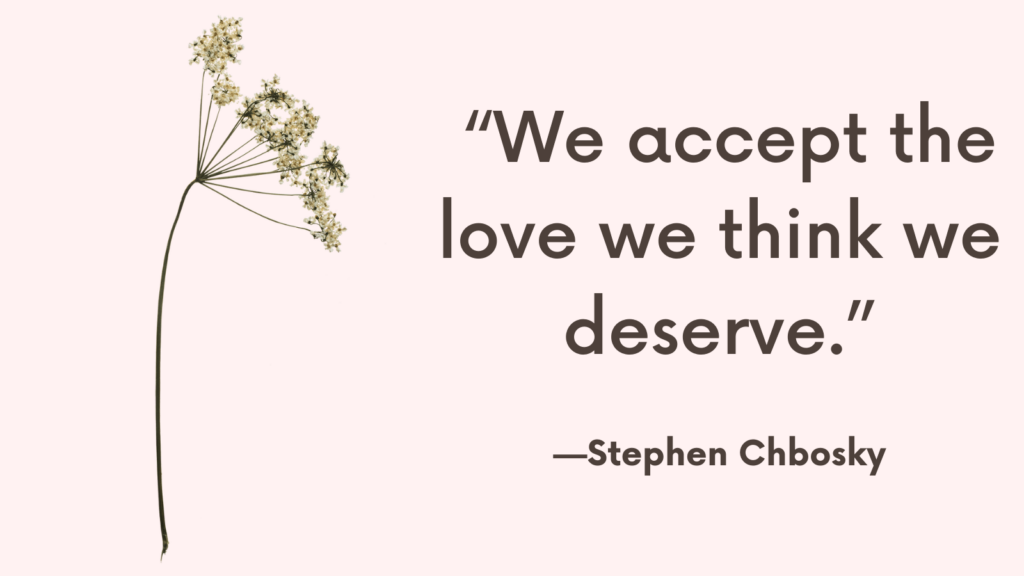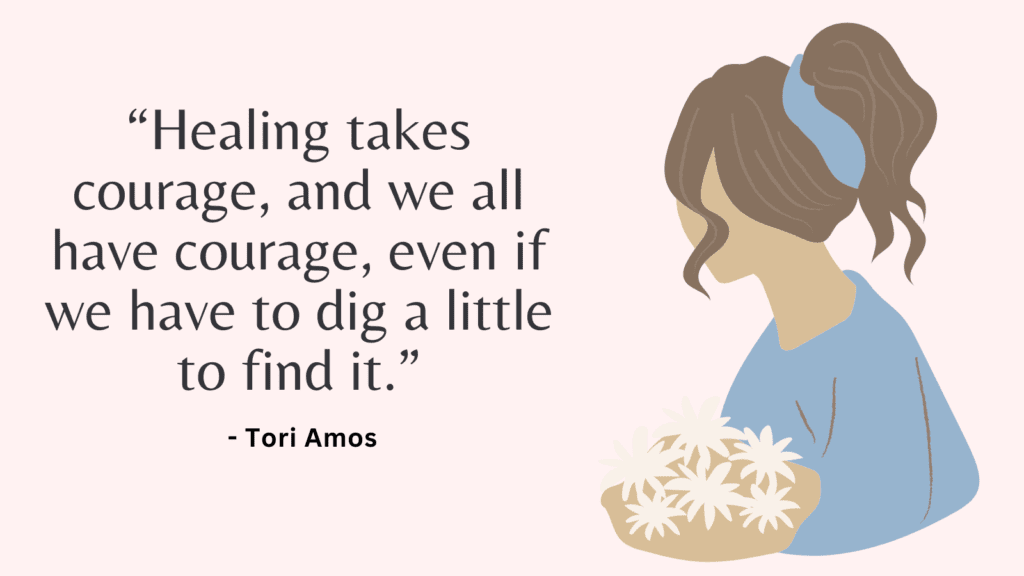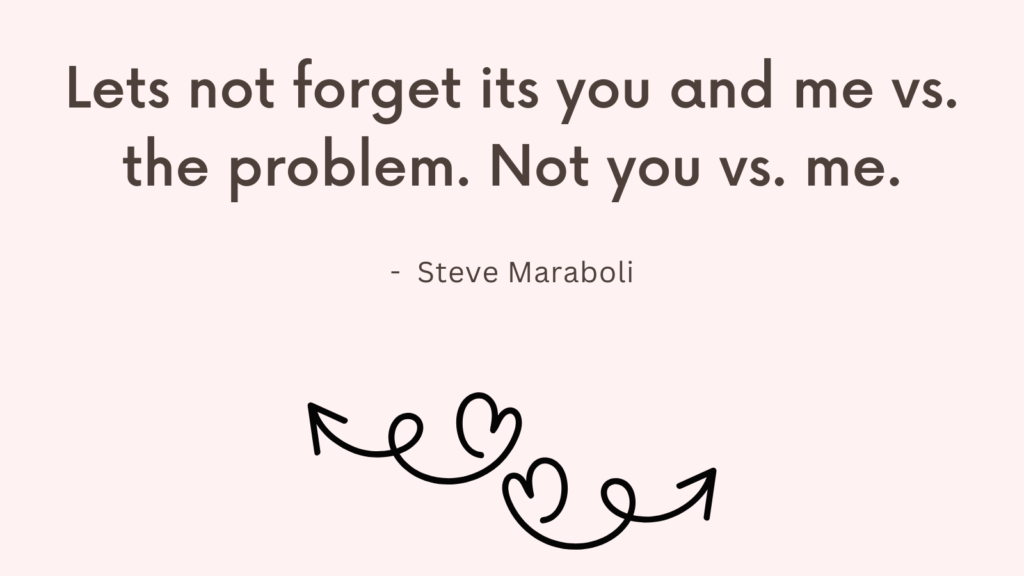Partners with an anxious attachment style often feel a deep fear of rejection or abandonment and may need consistent reassurance to feel secure in the relationship.
While their fears might stem from past experiences, you can play a significant role in creating a safe, nurturing environment.
This guide provides practical steps to reassure and support an anxiously attached partner while fostering a healthy and balanced connection.
How to Reassure an Anxiously Attached Partner?
1. Understand Their Attachment Style
Empathy begins with understanding.
Anxiously attached individuals often worry about being unimportant or unloved, which can lead to seeking constant validation.
Educate yourself about anxious attachment by reading articles, books, or attending therapy.
Acknowledge that their feelings stem from their attachment style and not necessarily from mistrust of you.
Avoid labeling their behavior as “needy” or “clingy,” which can exacerbate their insecurities.
Related: Healing Anxious Attachment In Adults In 5 Steps
2. Practice Consistent Communication
Consistency is key in helping an anxiously attached partner feel secure. Uncertainty or unpredictability can heighten their anxiety.
Respond to texts or calls in a timely manner when possible. Even a brief response like, “I’m busy, but I’ll call later,” can offer reassurance.
Check in regularly to show you care, especially during times of stress or conflict.
Be transparent about your schedule or plans to avoid creating unnecessary worry.
Related: Top 65 Journal Prompts For Anxious Attachment
3. Offer Verbal Reassurance
Anxiously attached individuals often need verbal affirmation of their importance and your commitment to the relationship.
Use affirming statements frequently, such as:
“I love you and appreciate you.”
“I’m here for you, no matter what.”
“You’re incredibly important to me.”
Avoid withholding affirmations during arguments; this can amplify their fear of losing you.
Reinforce their value with specific compliments about their character, actions, or qualities.
Related: Best 10 Books On Healing Anxious Attachment
4. Be Mindful of Triggers
Certain situations, such as changes in routine or perceived emotional distance, can trigger anxiety for your partner.
Notice patterns in their behavior. For example, do they become anxious when plans change last minute or when you’re preoccupied?
Provide extra reassurance during these moments. For instance, if you’re busy, say, “I know I’ve been distracted, but I care about you and will catch up with you soon.”
Discuss potential triggers openly and collaboratively to avoid misunderstandings.
Related: Best 50 Affirmations For Anxious Attachment
5. Show Affection Through Actions
While words matter, actions often speak louder and can reinforce your verbal reassurances.
Practice small acts of love, like holding their hand, surprising them with their favorite treat, or leaving a kind note.
Follow through on promises to build trust and reliability.
Spend quality time together regularly to show they are a priority in your life.
Related: Anxious Preoccupied Attachment Style (What Is It & How To Overcome It?)
6. Avoid Giving Mixed Signals
Mixed signals can create confusion and intensify your partner’s anxiety about the relationship.
Be clear about your feelings and intentions. For example, if you’re busy or stressed, explain your behavior rather than withdrawing silently.
Avoid hot-and-cold dynamics where you’re overly affectionate one day and distant the next.
Share concerns or issues calmly and constructively instead of becoming reactive or defensive.
Related: Earned Secure Attachment: What Is It And How To Become More Securely Attached?
7. Encourage Open Communication
Anxiously attached partners often fear expressing their needs because they worry it might push you away. Encouraging open dialogue can help alleviate this fear.
Use active listening techniques, such as nodding, maintaining eye contact, and paraphrasing their words to show understanding.
Ask open-ended questions like:
“What can I do to help you feel more secure?”
“Is there something you’ve been worried about that we can address together?”
Validate their feelings, even if you don’t fully understand them, by saying, “I see how that’s upsetting for you, and I want to help.”
Related: What Happens When You Stop Chasing An Avoidant?
8. Build Trust Over Time
Trust is the cornerstone of any relationship and particularly crucial for an anxiously attached partner to feel reassured.
Be dependable: Stick to your commitments and be someone they can count on.
Share your thoughts and feelings to demonstrate mutual vulnerability and openness.
Be patient with their healing process, recognizing that trust takes time to build, especially if past relationships have been hurtful.
Related: Dismissive Avoidant vs. Fearful Avoidant
9. Respect Their Need for Reassurance
While it’s important to reassure your partner, balance is key. Avoid dismissing their need for reassurance but set healthy boundaries for yourself if it becomes overwhelming.
Reassure without overcompensating. For example, instead of responding to every anxious question with long explanations, calmly reaffirm your feelings: “You’re important to me. We’re okay.”
Set boundaries if necessary, using kind language: “I care deeply about you, but I also need time to recharge. Let’s talk after dinner.”
Related: How To Stop Being The Pursuer In A Relationship?
10. Support Their Growth Toward Security
While you can provide reassurance, the ultimate goal is to help your partner feel more secure within themselves and the relationship.
Encourage self-care practices, like journaling or mindfulness, to help them regulate emotions.
Suggest therapy or support groups to explore their attachment style in-depth.
Celebrate their progress in managing anxiety and setting boundaries.
Related: Best 10 Anxiety In Relationship Books
What to Avoid?
1. Being Inconsistent With Communication
Long gaps between texts, unpredictable availability, or hot-and-cold attention can spike their anxiety and make them feel unsafe.
2. Sending Mixed Signals
Saying one thing but doing another—or being unclear about your intentions—feeds their fear of rejection and abandonment.
3. Minimizing or Mocking Their Emotions
Calling them “too sensitive” or “dramatic” when they express needs or fears shuts down trust and increases insecurity.
4. Withholding Reassurance When They Ask for It
Needing reassurance isn’t weakness—it’s a survival strategy. Withholding it to “teach them independence” often backfires.
5. Ignoring Small Bids for Connection
Little things—like sending a quick text, making eye contact, or asking about their day—matter deeply to anxiously attached people.
6. Reacting Harshly to Their Vulnerability
If they open up about their fears or past hurts, meeting that with anger, ridicule, or coldness will reinforce their fear of emotional closeness.
7. Using Silence or Withdrawal as a Punishment
Going silent during conflict or disappearing without explanation can feel like abandonment to someone with anxious attachment.
8. Keeping the Relationship Vague or Undefined
Dragging things out without clarity—“Let’s just see where this goes” for months—creates chronic anxiety and emotional exhaustion.
9. Making Jokes About Leaving or Replacing Them
Even if said lightly, jokes about leaving, cheating, or replacing them can hit harder than you realize and deepen their fears.
10. Expecting Them to “Just Calm Down” Without Support
Telling an anxiously attached person to calm down without offering safety, clarity, or reassurance often escalates distress rather than helping it.
Dating someone with anxious attachment doesn’t mean walking on eggshells—it means showing up with consistency, kindness, and emotional honesty. Small acts of stability build big trust, and a secure relationship is absolutely possible with patience and care.
Related: Top 15 Journal Prompts For Relationship Anxiety

Conclusion
Reassuring an anxiously attached partner requires understanding, patience, and consistent communication.
By creating a safe and supportive environment, you help foster trust and security, strengthening your relationship over time.
Remember, your role is to provide reassurance, but their growth toward security is a journey they must take with your support.



